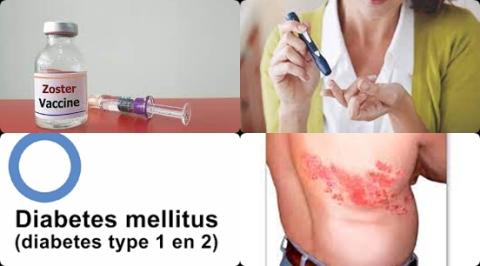
Objectives:
Is diabetes mellitus a risk factor for the development of herpes zoster?
Study design:
This review article included 5 cohort studies.
The incidence of herpes zoster in patients with diabetes mellitus varied greatly between studies, ranging from 2.11 per 1,000 person-years to 9.38 per 1,000 person-years.
The overall incidence of herpes zoster in patients with diabetes mellitus was 7.22 per 1,000 person-years.
The pooled incidence of herpes zoster in patients without diabetes mellitus was 4.12 per 1,000 person-years.
The Newcastle-Ottawa Scale (NOS) score of 5 eligible studies was 8. The NOS score above 6 was regarded as a high-quality study.
Results and conclusions:
The investigators found the overall risk of developing herpes zoster was significantly higher in patients with diabetes mellitus when compared to those with no diabetes mellitus [incidence rate ratio = 1.60, 95% confidence interval (CI) = 1.33 to 1.93].
The investigators found sub-analysis including 2 eligible studies demonstrated that the pooled incidence of herpes zoster was higher in patients aged ≥65 than that in patients aged 18 to 64 among both diabetes and non-diabetes groups.
Patients aged ≥65 in diabetes group had the highest incidence rate of herpes zoster [11.91 per 1,000 person-years].
The investigators concluded patients with diabetes mellitus are substantially at increased risk for the development of herpes zoster. Patients with diabetes mellitus should take into consideration the vaccination to prevent herpes zoster.
Original title:
The incidence of herpes zoster in patients with diabetes mellitus: A meta-analysis of cohort studies by Lai SW, Liu CS, […], Liao KF.
Link:
https://www.ncbi.nlm.nih.gov/pmc/articles/PMC8078473/
Additional information of El Mondo:
Find more information/studies on RCTs/cohort/significantly/review article, diabetes, vaccination and food fortification/malnutrition right here.
Varicella-zoster virus (VZV) is a ubiquitous human alphaherpesvirus that causes varicella (chicken pox) and herpes zoster (shingles). Varicella is a common childhood illness, characterized by fever, viremia and scattered vesicular lesions of the skin.
Herpes zoster, caused by varicella-zoster virus reactivation, is a localized, painful, vesicular rash involving one or adjacent dermatomes.